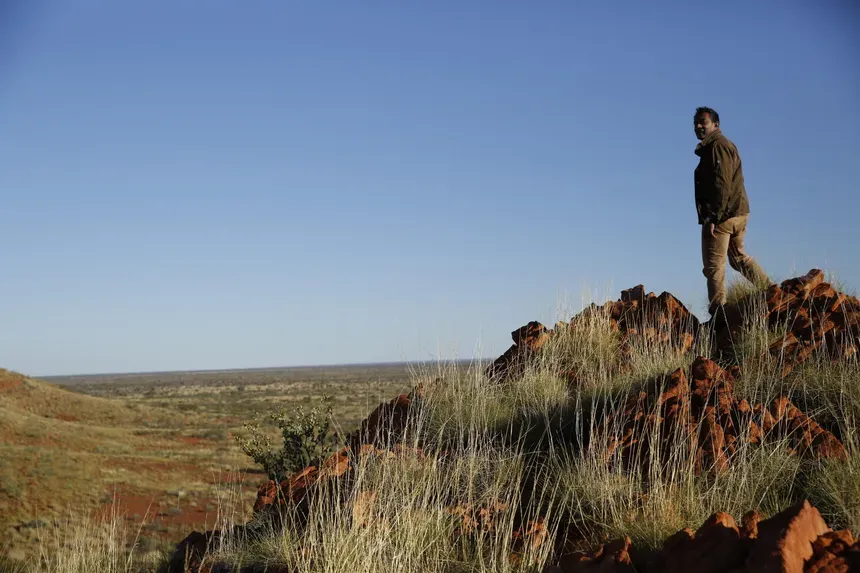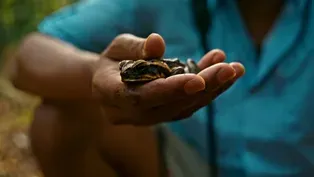
Listening In On the Ocean's Orchestra
Clip: Season 2 Episode 2 | 2m 13sVideo has Closed Captions
Professor Steve Simpson monitors the sounds of biodiversity on reefs in the Maldives.
In the Maldives, Professor Steve Simpson has devised a system that uses the sounds of the reef to help restore them.
Problems with Closed Captions? Closed Captioning Feedback
Problems with Closed Captions? Closed Captioning Feedback

Listening In On the Ocean's Orchestra
Clip: Season 2 Episode 2 | 2m 13sVideo has Closed Captions
In the Maldives, Professor Steve Simpson has devised a system that uses the sounds of the reef to help restore them.
Problems with Closed Captions? Closed Captioning Feedback
How to Watch Changing Planet
Changing Planet is available to stream on pbs.org and the free PBS App, available on iPhone, Apple TV, Android TV, Android smartphones, Amazon Fire TV, Amazon Fire Tablet, Roku, Samsung Smart TV, and Vizio.

Dr. M. Sanjayan On Our Climate Future
Dr. M. Sanjayan discusses how he stays optimistic about our climate future, our role in climate change, his climate heroes, and more.Providing Support for PBS.org
Learn Moreabout PBS online sponsorshipWith climate change, sea temperatures are rising and experts are predicting that coral could cease to be reproductive.
That would mean that eventually coral reefs would disappear altogether.
A devastating situation, especially for island nations like the Maldives.
The coral act as a shield from rising sea levels and storm erosions.
But help is coming.
An exciting breakthrough by acoustics expert Professor Steve Simpson and his pioneering team at Bristol University in the UK is unraveling underwater communications and discovering that listening to the heartbeat of the reef might be the key to healing it.
“This is a prototype.
” “What we're going to be doing here ” “is to be spreading our underwater ears out.
” “With a hydrophone in each end, ” “and these hydrophones ” “are listening in different directions.
” “And then with a four track recorder ” “and some wet headphones, ” “we're going to be able to snorkel ” “and actually listen live to the reef.
” “I've never done that before.
” “So it's really exciting to see what a reef ” “sounds like as we swim over it.
” Jess Hodge, a marine ecologist researching coral restoration, helps drag Steve's giant ears through the reef so that they are able to listen live to what Steve calls the ocean's orchestra.
“That is the first time I've ever ” “heard a reef like that ” “That is amazing!
” “Its a really fresh insight into the reef, ” “we see bright, colorful fish.
” “We see colorful corals.
” “But what we don't connect with ” “so well is the soundscape.
” “Our ears don't work underwater, ” “but with acoustic recorders ” “we realize that the soundscape ” “is absolutely full of life ” “and that soundscape ” is the sound of biodiversity.
Monitoring Muskoxen Births in Arctic Greenland
Video has Closed Captions
Clip: S2 Ep2 | 3m 3s | Dr. Niels Martin Schmidt's team are monitoring muskoxen in the frozen northeast. (3m 3s)
The Troublesome Cane Toad Invasion In Australia
Video has Closed Captions
Clip: S2 Ep2 | 2m 30s | M. Sanjayan investigates the biodiversity around Cairns Airport and meets the cane toad. (2m 30s)
Providing Support for PBS.org
Learn Moreabout PBS online sponsorshipSupport for PBS provided by:













